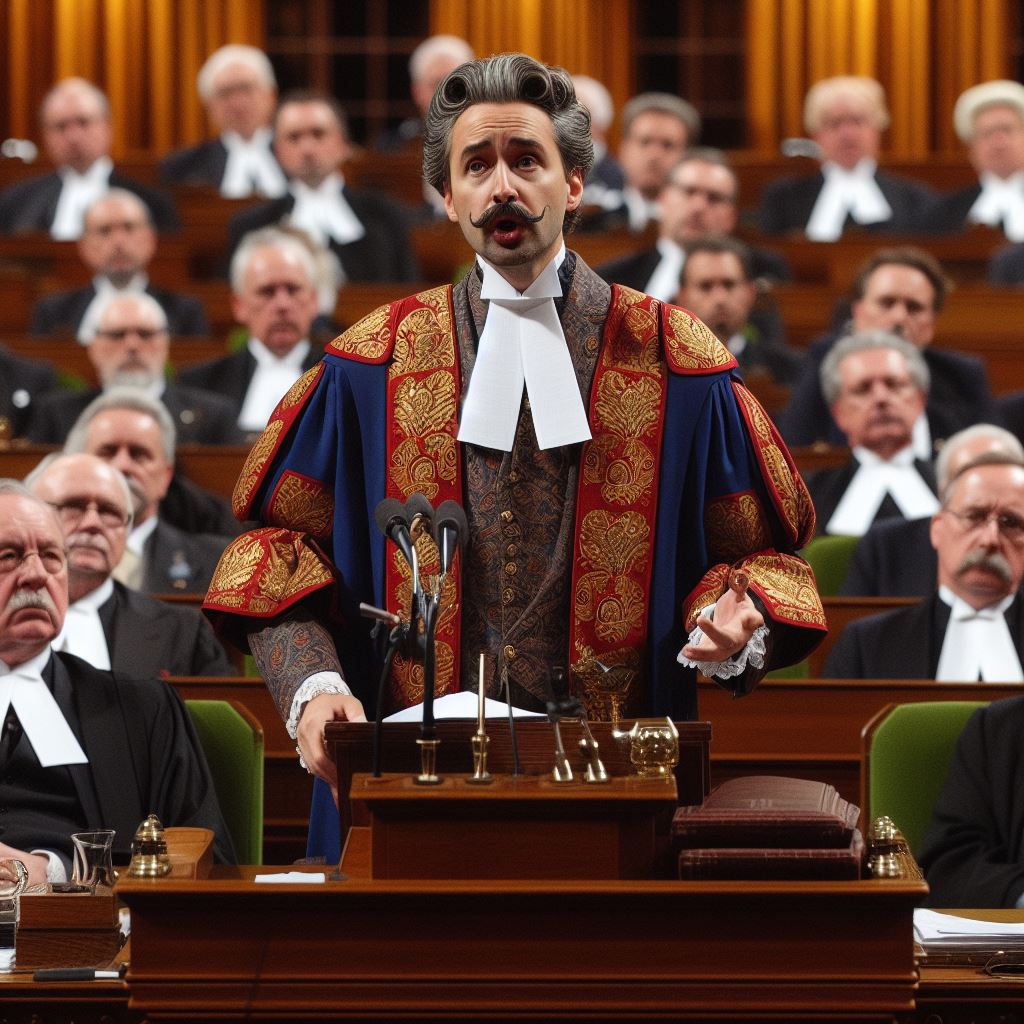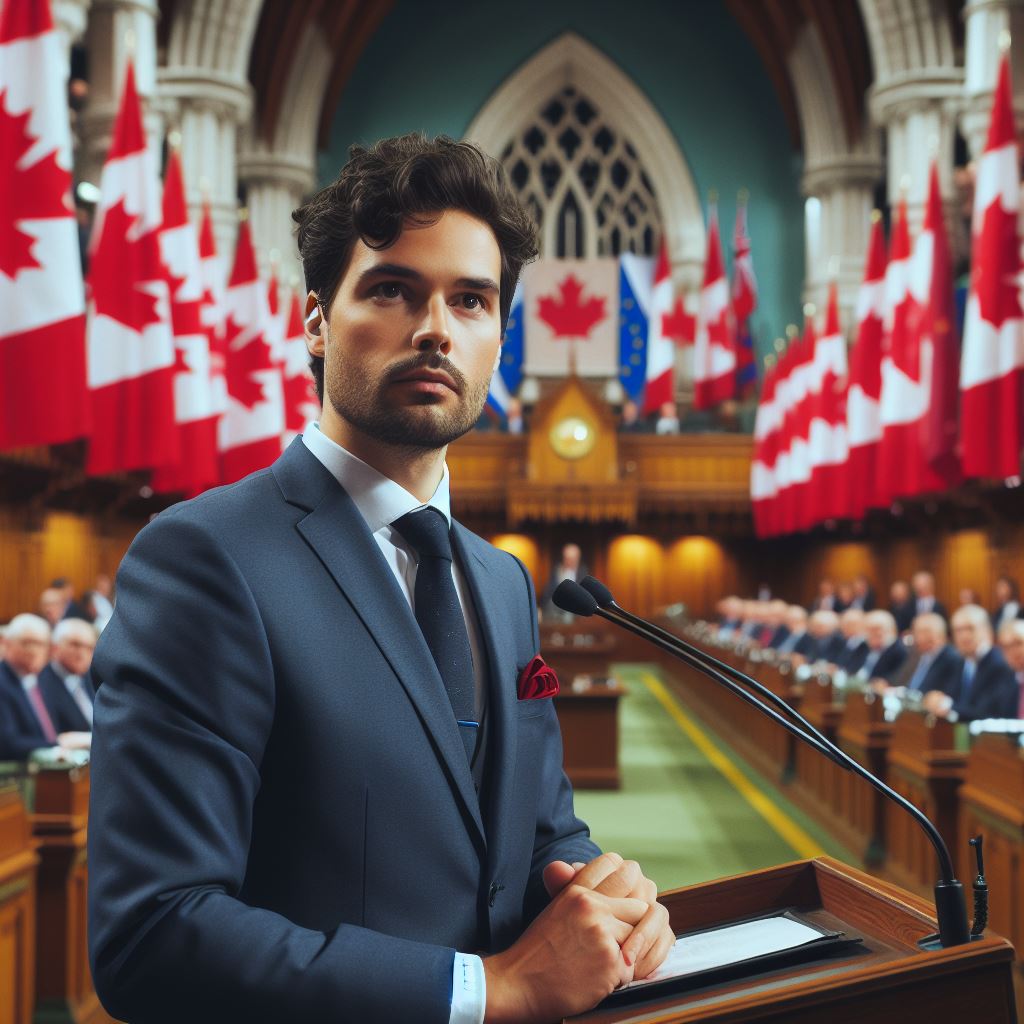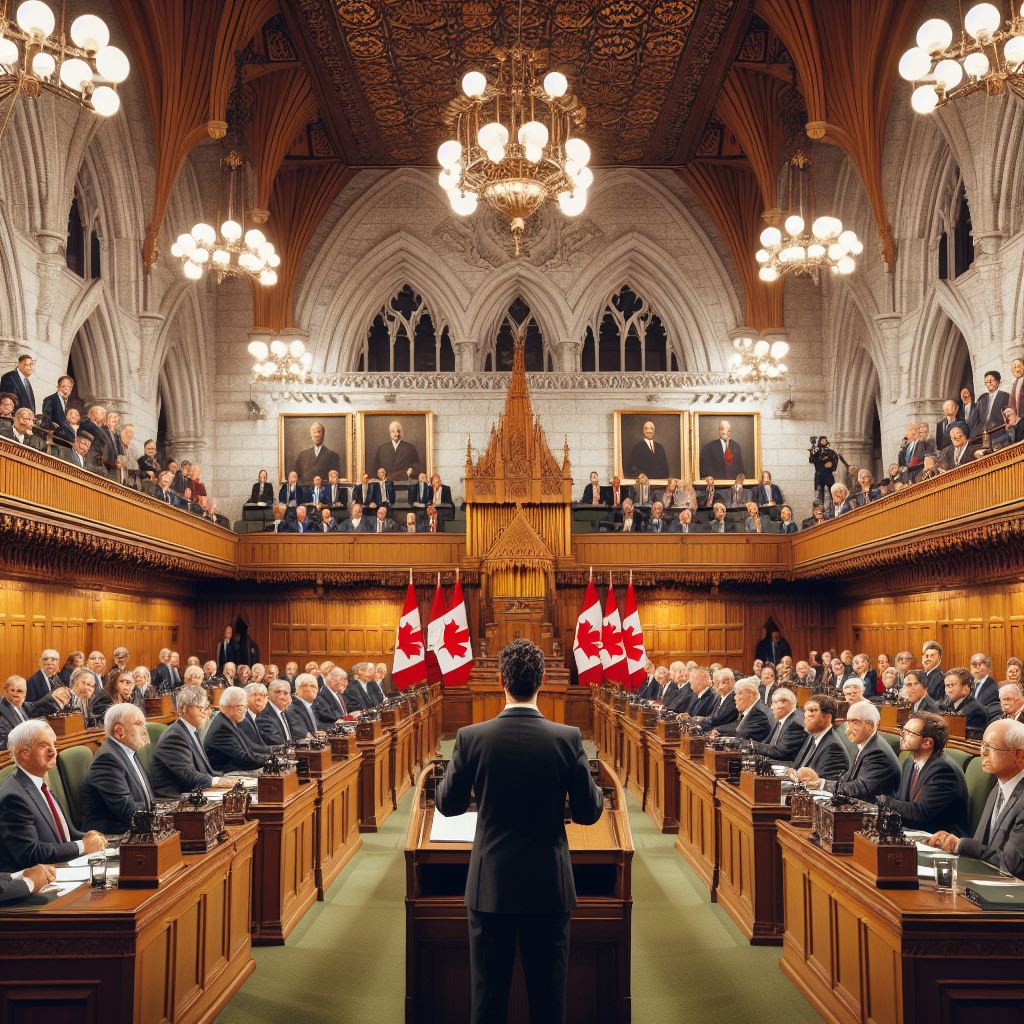Introduction
In today’s dynamic political landscape, individuals aspiring to make a difference must possess key skills that will help them navigate the complexities of a political career.
Political careers are vital for creating and implementing policies that shape our society.
Without individuals who possess the necessary skills, progress and development may be hindered.
In this blog post, we will explore the essential skills needed for those interested in pursuing political careers.
First and foremost, effective communication is a paramount skill for political success.
Politicians must be well-versed in public speaking, as they must be able to articulate their ideas and policies to a wide range of audiences.
Politicians must forge connections and alliances with other policymakers, community leaders, and constituents.
This helps facilitate collaboration and ensures the success of their initiatives.
Critical thinking and problem-solving skills are also essential for political careers.
Politicians must be able to analyze complex issues, understand different perspectives, and propose innovative solutions.
They must think strategically and make sound decisions that benefit their constituents and advance societal goals.
Moreover, adaptability and resilience are vital qualities for politicians.
The political landscape is constantly changing, and individuals in this field must be able to adapt their approaches to address emerging challenges.
They must also possess resilience in the face of criticism and setbacks, as political careers often require perseverance in the pursuit of long-term goals.
In short, political careers demand a diverse skill set. Effective communication, relationship building, critical thinking, adaptability, and resilience are key skills needed to excel in this field.
By honing these essential abilities, aspiring politicians can make a lasting impact on their communities and society as a whole.
Political Knowledge and Understanding
Significance of Political Knowledge and Understanding
In order to succeed in a political career, possessing political knowledge and understanding is crucial.
It is the foundation on which politicians build their careers and make informed decisions.
Having a deep understanding of politics allows politicians to navigate the complexities of the political landscape and effectively advocate for their constituents.
Furthermore, political knowledge and understanding enable politicians to analyze policy proposals, assess their implications, and make well-informed decisions that benefit society.
Without political knowledge and understanding, politicians would struggle to grasp the intricacies of legislative processes and fail to effectively engage in political discourse.
Staying Updated with Current Events and Political Issues
Staying updated with current events and political issues is of utmost importance in a successful political career.
Politicians need to be well-informed about the latest happenings to stay relevant and address the concerns of their constituents effectively.
By being aware of current events, politicians can identify emerging trends, understand public sentiments, and respond appropriately.
Furthermore, staying updated allows politicians to spot opportunities for collaboration and respond swiftly to sudden changes or crises.
Unlock Your Career Potential
Visualize a clear path to success with our tailored Career Consulting service. Personalized insights in just 1-3 days.
Get StartedUnderstanding the Political System and its Processes
Understanding the political system and its processes is essential for politicians to effectively navigate the bureaucracy and enact meaningful change.
Politicians must comprehend the structure of government, the roles of different branches, and the dynamics within the political system.
Without this understanding, politicians would struggle to propose and pass legislation, negotiate with other politicians, and advocate for their constituents’ interests.
By comprehending political processes, politicians can strategize their actions, form alliances, and build consensus to achieve their policy goals.
Benefits of a Strong Foundation in Political Science or Related Fields
A strong foundation in political science or related fields provides numerous benefits in a political career.
Firstly, it equips politicians with a comprehensive knowledge of political theories, ideologies, and concepts, which enhances their ability to analyze and navigate the political landscape.
Furthermore, studying political science enables politicians to develop critical thinking and research skills, which are essential for formulating evidence-based policies.
Additionally, a background in political science or related fields fosters an understanding of historical precedents, international relations, and global governance, enabling politicians to engage with complex geopolitical issues.
Ultimately, a strong foundation in political science empowers politicians to make informed decisions, serve their constituents effectively, and contribute to the betterment of society.
In fact, political knowledge and understanding play a vital role in political careers.
Staying updated with current events, understanding the political system, and having a strong foundation in political science are key elements for success in the political arena.
Read: Paths to Becoming a Politician in Canada
Communication and Public Speaking
The crucial role of effective communication in political careers
- Being able to communicate effectively is essential for success in political careers.
- Communication allows politicians to connect with constituents and deliver their messages.
- Effective communication helps in building trust, influencing public opinion, and gaining support.
The ability to articulate ideas clearly and concisely
- The ability to articulate ideas clearly and concisely is vital for politicians.
- Clear and concise communication helps politicians convey their vision and policy proposals effectively.
- It allows them to avoid misunderstandings and ensures their message resonates with the audience.
The importance of public speaking skills for delivering persuasive speeches and engaging with diverse audiences
- Public speaking skills are crucial for politicians to communicate their ideas to the public.
- Persuasive speeches can sway public opinion and mobilize support for political agendas.
- Engaging with diverse audiences requires adapting communication styles to reach people from different backgrounds.
Tips for improving communication and public speaking skills
- Practice speaking in front of a mirror or recording yourself to improve delivery and body language.
- Focus on clarity and brevity when articulating ideas, avoiding jargon and complex language.
- Join public speaking clubs or classes to enhance presentation skills and gain confidence.
- Seek feedback from mentors or trusted individuals to identify areas for improvement.
- Study and emulate effective communicators, such as renowned politicians or public figures.
- Engage in active listening to understand and respond effectively to the concerns of constituents.
- Utilize visual aids and storytelling techniques to create engaging and memorable speeches.
- Maintain eye contact, use gestures, and vary vocal tones to captivate the audience’s attention.
- Be aware of non-verbal cues and body language to convey confidence and sincerity.
- Regularly practice public speaking to build confidence and overcome stage fright.
Effective communication and public speaking skills are essential for success in political careers.
Politicians must be able to articulate their ideas clearly and concisely, deliver persuasive speeches, and engage with diverse audiences.
By practicing and seeking improvement, politicians can enhance their communication abilities and connect effectively with constituents.
Read: A Day in the Life of a Canadian Politician
Leadership and Decision-Making
Importance of Leadership Skills in Political Careers
- Leadership skills are crucial for political careers as they enable effective governance.
- A strong leader can inspire and guide individuals to work towards the greater good.
- Leadership skills help politicians gain support from their constituents and rally people behind their policies.
- Effective leadership is essential for managing diverse opinions and achieving consensus.
Ability to Inspire and Motivate Others towards a Common Goal
- Politicians need the ability to inspire and motivate others to work towards a common goal.
- Leaders can articulate a vision that resonates with people, giving them a sense of purpose.
- Motivated individuals contribute their skills and energy, leading to the successful implementation of policies.
- By fostering a shared sense of mission, political leaders can build a strong and united society.
Need for Effective Decision-Making in Complex Political Situations
- Political careers demand effective decision-making skills, especially in complex situations.
- Leaders must analyze diverse information, assess potential risks, and consider long-term consequences.
- Sound decision-making ensures effective governance, leading to positive outcomes for constituents.
- In challenging situations, politicians need to make tough choices while considering the greater good.
Benefits of Displaying Strong Leadership Qualities and Decision-Making Skills
- Showing strong leadership qualities earns respect from constituents, colleagues, and international partners.
- Effective leaders can build alliances, negotiate diplomatically, and foster cooperation between different parties.
- Good decision-making skills lead to increased trust among the public and stakeholders.
- Leaders who can make difficult decisions inspire confidence and create a stable political environment.
In general, leadership skills hold immense importance in political careers.
Leaders inspire and motivate others, leading to successful policy implementation.
Effective decision-making in complex situations ensures effective governance and positive outcomes for constituents.
Displaying strong leadership qualities and decision-making skills brings numerous benefits, including respect, trust, and stability.
Developing these skills is crucial for aspiring politicians in order to make a significant and positive impact on society.
Read: Navigating Government Policies: Analyst Tips

Critical Thinking and Problem-Solving
The significance of critical thinking skills in political careers
The significance of critical thinking skills in political careers cannot be overstated.
Political leaders must possess the ability to analyze and evaluate complex issues from multiple perspectives.
The ability to analyze and evaluate complex political issues
The ability to analyze and evaluate complex political issues is crucial for effective decision-making.
Political leaders must critically assess information and develop well-reasoned positions.
The importance of problem-solving skills for addressing societal challenges
Problem-solving skills are of paramount importance in political careers as they enable leaders to address societal challenges.
Effective problem-solving directly impacts policy-making and governance.
Examples of how critical thinking and problem-solving skills can be developed
Developing critical thinking and problem-solving skills can be achieved through various methods.
Here are a few examples:
- Research: Political leaders should invest time in researching various topics, exploring different viewpoints, and understanding the underlying factors at play.
- Engaging in debates and discussions: Actively participating in debates and discussions sharpens critical thinking skills by challenging one’s own ideas and learning from others.
- Seeking diverse perspectives: Political leaders should actively seek out diverse perspectives and experiences to broaden their understanding and refine their problem-solving approaches.
- Continuous learning: Engaging in ongoing education and staying updated on current events and policy developments helps enhance critical thinking and problem-solving abilities.
- Practicing empathy: Developing empathy allows political leaders to question their own biases and consider the needs and concerns of various communities when addressing societal challenges.
- Utilizing data and evidence: Relying on factual information, data analysis, and evidence-based research enables political leaders to make informed decisions and solve problems more effectively.
- Collaborating with experts: Seeking input from subject matter experts and collaborating with professionals from different fields can provide valuable insights for problem-solving.
- Engaging in simulated scenarios: Simulating real-life political scenarios and addressing challenges in a controlled environment helps leaders develop critical thinking and problem-solving skills.
- Encouraging creativity: Nurturing creativity and encouraging new ideas allows political leaders to think outside the box and develop innovative solutions to complex problems.
- Reflecting and self-evaluating: Regularly reflecting on decision-making processes, evaluating outcomes, and learning from failures are essential for continuous improvement.
In essence, critical thinking and problem-solving skills are essential for success in political careers.
The ability to analyze complex issues, make informed decisions, and effectively solve societal challenges is fundamental for effective leadership.
By actively developing these skills through various methods, political leaders can enhance their effectiveness and contribute to positive change.
Read: Politician Salaries: A Canadian Overview
Interpersonal and Networking Abilities
Importance of Building and Maintaining Relationships in Political Careers
- Building and maintaining relationships is crucial in political careers for establishing trust and credibility.
- Strong relationships help politicians garner support and cultivate alliances to advance their agendas.
- Individuals with good interpersonal skills can establish rapport with constituents and gain their loyalty.
- Active networking allows politicians to connect with key individuals who can provide resources and opportunities.
- Politicians who build strong relationships often have a better chance of achieving their policy goals.
Need for Effective Networking to Collaborate and Gain Support
- Networking is essential to collaborate with colleagues, gather information, and share expertise.
- Through networking, politicians can access a vast pool of knowledge and tap into different perspectives.
- Effective networking cultivates a strong support system, enabling politicians to overcome challenges and obstacles.
- Networking events and platforms provide opportunities to meet influential individuals who can endorse policies.
- Political careers thrive on mutually beneficial relationships, and networking is the key to establishing them.
Ability to Negotiate and Resolve Conflicts for Successful Political Relationships
- Negotiation skills are essential in political careers to find common ground and achieve compromise.
- Politicians need to resolve conflicts to maintain productive relationships with colleagues and constituents.
- The ability to negotiate and mediate disputes showcases leadership and problem-solving abilities.
- Successful resolution of conflicts enables politicians to maintain support and prevent damage to their reputation.
- Political relationships hinge on the ability to navigate disagreements and find mutually agreeable solutions.
Tips for Enhancing Interpersonal and Networking Abilities
- Active Listening: Practice active listening to understand others’ perspectives and build meaningful connections.
- Building Rapport: Develop an authentic and personal connection with constituents and colleagues.
- Expanding Networks: Attend social events, professional conferences, and join relevant organizations.
- Mentorship: Seek guidance from experienced politicians who can provide advice and support.
- Developing Social Skills: Enhance communication skills, emotional intelligence, and empathy.
To succeed in political careers, individuals must recognize the importance of interpersonal and networking abilities.
Building and maintaining relationships is vital for establishing trust, gaining support, and advancing policy goals.
Effective networking allows politicians to collaborate, access resources, and tap into different perspectives.
The ability to negotiate and resolve conflicts is crucial for maintaining successful political relationships.
By actively listening, building rapport, expanding networks, seeking mentorship, and developing social skills, individuals can enhance their interpersonal and networking abilities, positioning themselves for political success.
Resilience and Adaptability
In the realm of political careers, resilience and adaptability are crucial skills for success.
The ability to overcome challenges and setbacks, as well as adapt to rapidly changing political landscapes, can make or break a politician’s career.
This section discusses the significance of resilience, the need for adaptability, and provides suggestions for developing these essential skills.
The Significance of Resilience in the Face of Challenges and Setbacks
Resilience is the ability to bounce back from adversity and keep moving forward.
It is especially important in the world of politics, where challenges and setbacks are almost inevitable.
Political careers are filled with obstacles, from election losses to criticism and scandals.
Those who can navigate these obstacles with resilience are more likely to achieve their goals and maintain their political influence.
The Need to Adapt to Rapidly Changing Political Landscapes
Political landscapes can change rapidly due to various factors such as shifting public opinion, emerging technologies, and geopolitical events.
Politicians who fail to adapt to these changes risk becoming irrelevant and losing their power.
Adaptability is not merely about survival but also about seizing opportunities that arise from change and using them to advance one’s political career.
It is important to embrace flexibility, openness, and an eagerness to learn and adapt in response to new situations.
The Ability to Remain Focused and Composed During Stressful Situations
Politics can be an incredibly stressful field, with high-pressure situations and intense scrutiny.
The ability to remain focused and composed in the face of stress is vital.
Leaders who can maintain their calmness and clarity of thought in challenging times inspire confidence and trust among their constituents.
They are better equipped to make sound decisions and navigate complex political landscapes, ensuring their continued success.
Suggestions for Developing Resilience and Adaptability Skills
Developing resilience and adaptability skills is an ongoing process that requires dedication and practice.
Here are some suggestions to cultivate these essential qualities:
- Build a support network: Surround yourself with trusted individuals who can provide guidance and emotional support.
- Learn from failures: Instead of dwelling on setbacks, view them as opportunities for growth and learning.
- Embrace change: Develop a mindset that welcomes change and sees it as an opportunity for advancement.
- Seek feedback: Actively seek feedback from others to identify areas for improvement and recalibrate your approach.
- Practice self-care: Prioritize your mental and physical well-being to maintain resilience and cope with stress.
- Continuously learn: Stay informed about current events and political developments to adapt effectively.
- Take calculated risks: Step out of your comfort zone and take calculated risks to broaden your experience and skills.
By implementing these strategies and incorporating them into your daily life, you can enhance your resilience and adaptability, ultimately positioning yourself for success in political careers.
Conclusion
The key skills discussed for pursuing a political career are effective communication, critical thinking, and leadership abilities.
It is crucial to emphasize the importance of developing and honing these skills as they form the foundation for success in politics.
I encourage readers to continuously seek opportunities for skill improvement throughout their political journey, whether through training programs, networking, or hands-on experience.
I urge you to take a proactive approach and explore further resources and opportunities to enhance your political skills.
By doing so, you can maximize your potential and make a real impact in the political arena.




